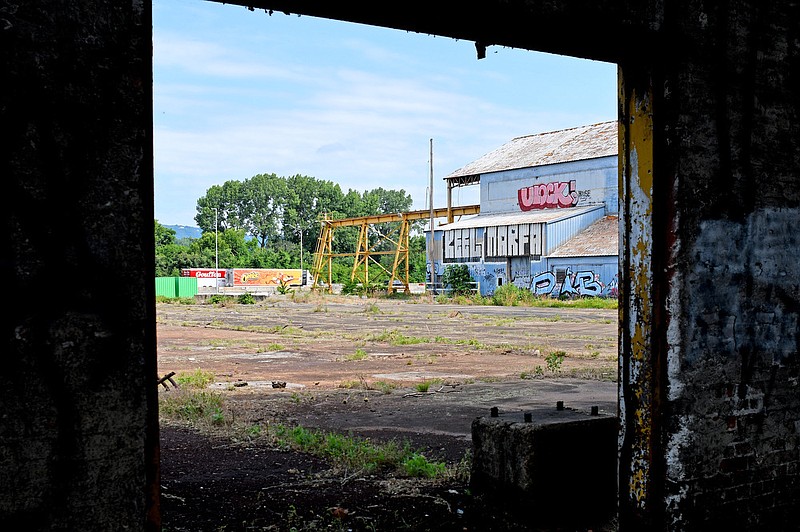The revitalization of South Broad has been decades in the making. Far from a new thing, the stadium plan being proposed is the result of hundreds of public meetings and community consensus at both the local and state level. I know this to be true, because I've been here through all of it.
Through multiple city and county administrations, more public meetings than I can count, and innumerable plans, studies and frameworks, our community has worked toward this moment - the moment when we decide whether to move forward on the path our community adopted several years ago, or to wallow in self-doubt and paralysis.
In 1995, I bought a 100-year-old building on South Broad Street for my growing commercial interior design business, Signal Design Group. I knew then that South Broad was a neighborhood that had once thrived, a predominantly African American community where families lived, worked and played. Yet after a time, it became a community forgotten.
This was unacceptable to me, and thanks to a number of other South Broad business owners who felt the same way, the South Broad Redevelopment Group was born in 2001. Our footprint ran along the South Broad corridor from the base of Lookout Mountain to the I-24 South Broad overpass, and from Market Street on the east to the Tennessee River to the west.
We began by addressing drugs, prostitution and burglary by working alongside our city's police department, department of human services and the court system. We next looked to the Regional Planning Agency to help us sketch out a new future for the district. With the help of Karen Hundt and her team, we began hosting community input meetings across the district.
These efforts and others resulted in the official South Broad Redevelopment Plan being approved in 2003 by the Hamilton County Commission and Chattanooga City Council.
Our next task was to rezone this corridor from manufacturing to urban general commercial. Again, thanks to RPA, county commission, city council and the multiple planning meetings over many years, this was accomplished. We had laid good groundwork for redevelopment of this area.
The largest piece of the puzzle was the giant property made up of the former Wheland Foundry and U.S. Pipe sites, which were closed in 2002 and 2006, respectively.
When Perimeter Properties acquired those critical 140 acres, good things began to happen: New studies began to emerge that incorporated both the former Wheland Foundry and U.S. Pipe sites into the South Broad District. They were robust studies, held in the public realm and engaging both community and government. This multi-year, collaborative effort yielded a number of key plans, including:
* 2007 South Broad Zoning Study
* 2007 U.S. Pipe/Wheland Foundry Master Plan
* 2010 Bicycle and Pedestrian Plan
* 2008 U.S. Pipe/Wheland Foundry Master Plan
* 2014 Bicycle Implementation Plan
* 2015 Regional Transportation Plan
* 2018 South Broad District Study
The 2018 plan, which, by the way, includes a ballpark on page 32, was publicly adopted by Chattanooga's city council and recommended by the Chattanooga-Hamilton County Regional Planning Commission.
To help make it happen, our South Broad Redevelopment Group worked to make sure the newly developed Riverwalk came through the South Broad District. We also worked to ensure that TDOT's new exit ramp onto South Broad will transition to a frontage road that will not only provide access to South Broad District, but also to Williams Street and Market Street at signalized intersections.
It's funny to hear people ask, "Why now, why so soon?"
Looking back, I would have guessed the question would have been, "What took you so long?" Our neighborhood, our community, our city, our county and our state have been working for years to revitalize this neighborhood. The South Broad Redevelopment Group has put in almost three decades of work. That work has all happened publicly, and those who missed it can catch up at southbroaddistrict.org.
But this is about more than a ballpark; it always has been. It's about stewardship of God's land. Leveraging a catalyst to reclaim our history and legacy. And revitalizing our city by restoring our pride in our western gateway, so we can once again welcome visitors with full hearts and our heads held high.
We must not give in to paralysis through analysis. The studies have been published, the plans have been adopted, and the meetings have been held. The time to act is now.
The Rev. Ann Gammon Weeks, a deacon in the Episcopal Diocese of East Tennessee, is president emeritus of the South Broad Redevelopment Group Inc.
